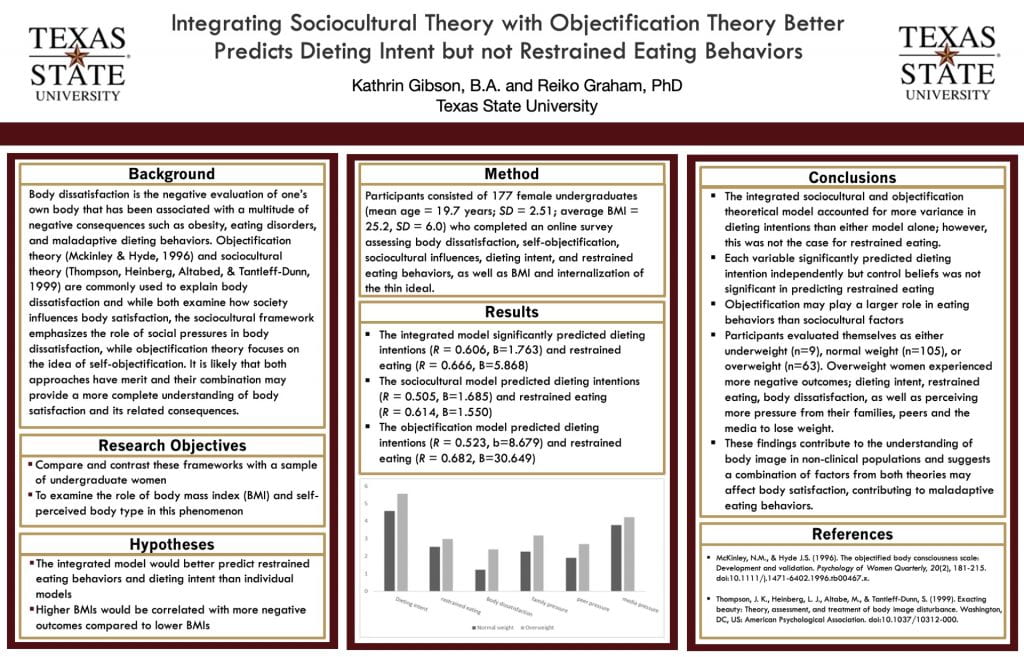Integrating Sociocultural Theory with Objectification Theory Better Predicts Dieting Intent but not Restrained Eating Behaviors
Principle Author
Kathrin Gibson
Graduate
Co-Author(s)
Dr. Reiko Graham
Abstract
Body dissatisfaction is the negative evaluation of one’s own body. Objectification theory and sociocultural theory are commonly used to explain body dissatisfaction.It is likely that both approaches have merit and their combination may provide a more complete understanding of body satisfaction and its related consequences. The primary objective of this study was to compare and contrast these two frameworks with a sample of undergraduate women. Participants for this study consisted of 177 female undergraduate volunteers (mean age of M = 19.72 (SD = 2.51); the average BMI (kg/m2) of the sample was 25.173 (SD = 5.968). who were recruited from Texas State University. Participants completed an online survey assessing body dissatisfaction, restrained eating behaviors, self-objectification, sociocultural influences, dieting intent, BMI, and internalization of the thin ideal. The integrated sociocultural and objectification theoretical model accounted for more variance in dieting intentions than either model alone; however, this was not the case for restrained eating suggesting that objectification may play a larger role in eating behaviors than sociocultural factors. These findings contribute to the understanding of body image in non-clinical populations and suggests a combination of factors from both theories may affect body satisfaction, contributing to maladaptive eating behaviors.

Like.